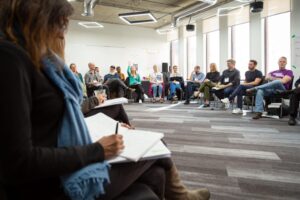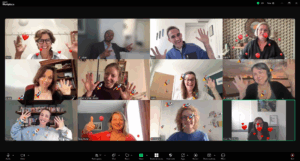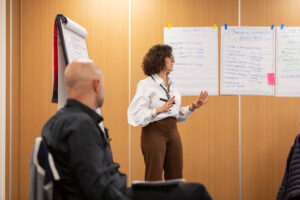This month’s reading list recommendations come from the ORSC UK Community Steering Group. These are a collection of wide ranging books, and great reads, that are relevant for both experienced ORSC practitioners and coaches, and those who are new to ORSC.
Radical Help by Hilary Cottam
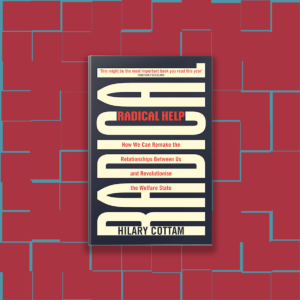
Recommended by Jen Parkin, Systemic Change Practitioner
This book paints a brilliant picture of as to how the current welfare state, and the thinking that’s driven our concept of the welfare state, is floored. A lot of the structures in place to help people who need help can even make people’s lives worse. The book presents a radical and alternative approach to how people and communities can help themselves. Although the book is not associated with ORSC, it will reconnect you to why ORSC is important in the first place. For those interested in pursuing their “world work” (world work – commitment to leaving the world in a better place than you found it using ORSC skills working for a cause that resonates with you), this book is practically helpful to help you harness ORSC in a meaningful way and channel it into a cause.
Braiding Sweet Grass by Robin Wall Kimmerer
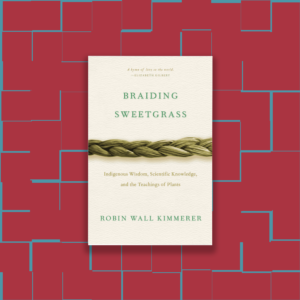
Recommended by Lou Yates, ORSC Practitioner and Nature Bathing Guide
As coaches, we are largely focussed on the interconnections between each other, but there is a disconnect between humans and our relationship with our co-habitants on the planet. This book examines that missing puzzle piece: our relationship with nature. Not only can that relationship be fulfilling but building a deeper respect for nature is in integral part of tackling the growing issues surrounding climate change and the dwindling numbers of important species that we need to survive. Wall Kimmerer combines her background in Ecology and Forest Biology with indigenous wisdom from her heritage as a descendant from the Potawatomi tribe in North America.
The Five Dysfunctions of a Team by Patrick Lencioli
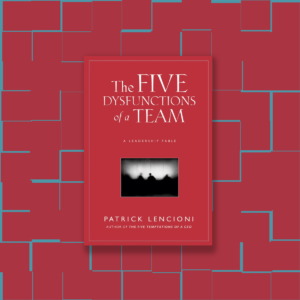
Recommended by Philippe Guenet
This book is a novel about a CEO and her experiences with teams and working with the 5 Dysfunctions of Teams to enable them to work better, seeing the team as a whole rather than as individuals within the team The 5 Dysfunctions are: the absence of trust, fear of conflict, lack of commitment, avoidance of accountability, and inattention to results. The book is extremely easy to read; it’s not a big book and it’s colloquially written. It gives real life application to the 5 dysfunctions and the examples are applicable to all industries. Suitable for ORSC practitioners, entry level coaches as well as experienced coaches.
Systems Thinking for Social Change by David Peter Stroh
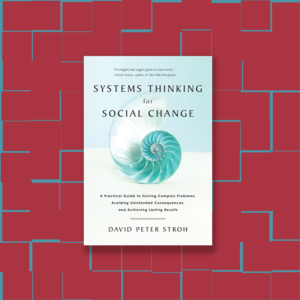
Recommended by Stephane Kolinsky
The concepts in this book provide a language and methodology that compliment ORSC. It takes systems thinking to another level of tangible application. It’s a way of stepping outside the ORSC framework, while taking key concepts from ORSC and applying them to multi stakeholder work around complex real-world social problems. Using a form of deep democracy by hearing all the voices within the system, the book walks through creating a system map that can be used to uncover issues within it. This book is great for anybody who is ORSC trained and experienced in the ideas of systems thinking, but it’s also very accessible for those who are new to the concept.
Raising Our Hands by Jenna Arnold

Recommended by Nairy McMahon
This book explores the social and electoral ramification of the psyches of white American women. It “knocked my socks off” as it questions our role as women in Politics – the book is based on white American women, and yet women everywhere can relate to what is exposed.
I had to practice holding the Meta-Skill of Enquiry Awareness, as I was constantly challenged, as waves of awareness pushed my consciousness to see and accept my privileges and where I have kept quiet. ORSC holds that all the voices of the system need to be heard so the system can see itself and change. If we withhold our truth when we vote or participate in society than the system continues to perpetuate the same things, because we are not fully consciously speaking our truth. Being silent robs the system of fully seeing itself and including everyone’s voice. This is part of the reason why progress is hindered.
This book is recommended to all (as the title of the book states) who are ready to “Stop Avoiding Hard Conversations, Start Accepting Responsibility, and Find Our Place on the New Frontlines”
Dignity: Its Essential Role in Resolving Conflict by Donna Hicks
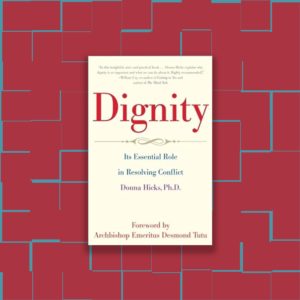
Recommended by Jo McHale
‘Whatever work we do, we are always in relationship’. That is inherent in ORSC. But what happens when relationships break down? We most probably harden our hearts in self-defense and attribute blame to others. We’re left feeling on guard, unwilling to open up, unable to trust. We don’t feel safe.
The reason, says Donna Hicks, is that our dignity has been violated. Her years of international conflict resolution work gave her so many examples of how hurt people feel they are treated without the care and attention that conveys the message that they matter. And when we don’t matter, we don’t feel safe. The result? Conflict. Dignity, she says, is a matter of recognising each other’s value and worth, recognising our inter-relatedness and our human-ness as feeling beings.
Her book explores ten essential ways of conveying this. She lists a further ten ways in which we tend to violate dignity, and describes what it takes to achieve a dignified reconciliation process. Quoting Archbishop Tutu: ‘A person is a person through another person. My humanity is caught up, bound up, inextricably, with yours. We can only be human together.’
Attached: Are you Anxious, Avoidant or Secure? How the science of adult attachment can help you find – and keep – love by Amir Levine

Recommended by Alina Flestea, Organisational Psychologist and ORSC Practitioner
When I first read this book, I was stuck between early adulthood and mature adulthood. It was revelatory to see my attachment patterns learnt from previous relationship experiences. It was disappointing, but extremely helpful, to understand some of my personal and professional interactions. In this book, Levine and Heller describe three styles of attachment: anxious, avoidant and secure. In the business coaching sessions that I’m facilitating, I can always see the love-hate relationship between anxious and avoidant or the rationale arguments brought by the secure one. I would recommend this book to other coaches because it could help them understand the group dynamics or the relational patterns and myths.


